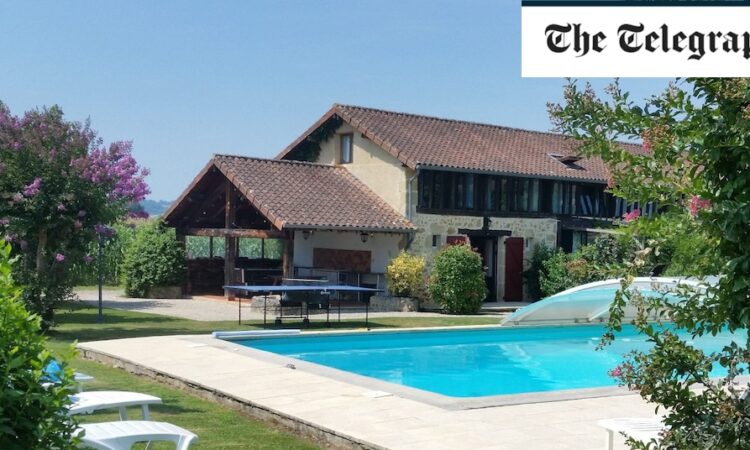
“Brexit has presented many little obstacles, such as British guests being turned away at customs with passport [expiry date] issues, or the much higher cost of taking pets abroad. Now so many people book at the last minute too. Many owners are questioning whether they are still living the gîte dream.”
In the nearby Charente, Leggett’s Hugh McSheffrey says the usual flurry of British gîte owners arriving at Easter in their expensive cars to open up the gîtes for the summer season was noticeably absent this year.
“Some have sold up, not wanting the hassle of getting a visa,” he says.
Charles Hodson of Beaux Villages in the Tarn says he’s seeing more French people looking to buy gîtes than British. He also now markets his own gîtes towards the French.
“We are making around €20,000 a year but a big disadvantage is not being able to have our family over to stay during the summer as we’re fully booked.”
Valerie Aston, of advisory service Start Business in France, is busier this year than last – she says new gîte clients are going for bigger or higher-quality projects, in Aquitaine or Occitanie. She suggests that British people who want to embrace the gîte dream should “apply for a carte de séjour profession libérale/entrepreneur as it’s the easiest [visa] to get”.
This visa is the popular option for self-employed Britons moving to France, and it requires a business plan projecting your income based on local rates and occupancy levels – with a net income of at least €17,000 net a year.
“Show a strategy of how you will reach customers and extra commercial activities you can offer,” she adds.
On top of a visa, you also need to choose between the micro-bic or regime reel – tax regimes that have different expense allowances.
Charles Cramailh, of Leggett Property Management, says you need expert advice including from a chartered accountant in the light of changes being introduced (they also impact your capital gains tax burden when you sell).
“These tax changes are forcing the owners of short-term rentals in France to take a more professional approach. They won’t necessarily mean that owners lose out, but could mean higher accounting costs.”
He warns more regulatory changes are coming post-Paris Olympics to help reduce the short-term rental stock in favour of long-term lets, amid the housing crisis in France.
Overestimating income
There’s now fierce competition from platforms such as Airbnb. Last year there were 1.2 million short-term lets available in France, according to AirDNA, the analyst. That number is growing, with 21pc more listings in the first three months of this year compared to the same period last year.
In the Dordogne there’s a lot of competition, but some owners who are raising their game are thriving. It’s less seasonal than areas such as the Charente or Brittany, says Andrew Nicholson of agent Beaux Villages – who is also a gîte owner.
“We’ve been successful after realising the importance of getting great reviews based on the service you provide: giving local food and wine on arrival, using good bed linen and towels.” Kingsize beds are now expected, adds Cramailh.
Tony and Natasha Crawley moved to France from Essex a month ago and are aiming to offer high-end gîtes, sleeping 10 for €8,000 a week in the Dordogne’s Castelnau-la-Chapelle.
“We wanted to do something together and it will be my pension,” says Tony, 58, an electrician and entrepreneur. “We’re taking lots of advice… The tax regime changes are a minefield.”
